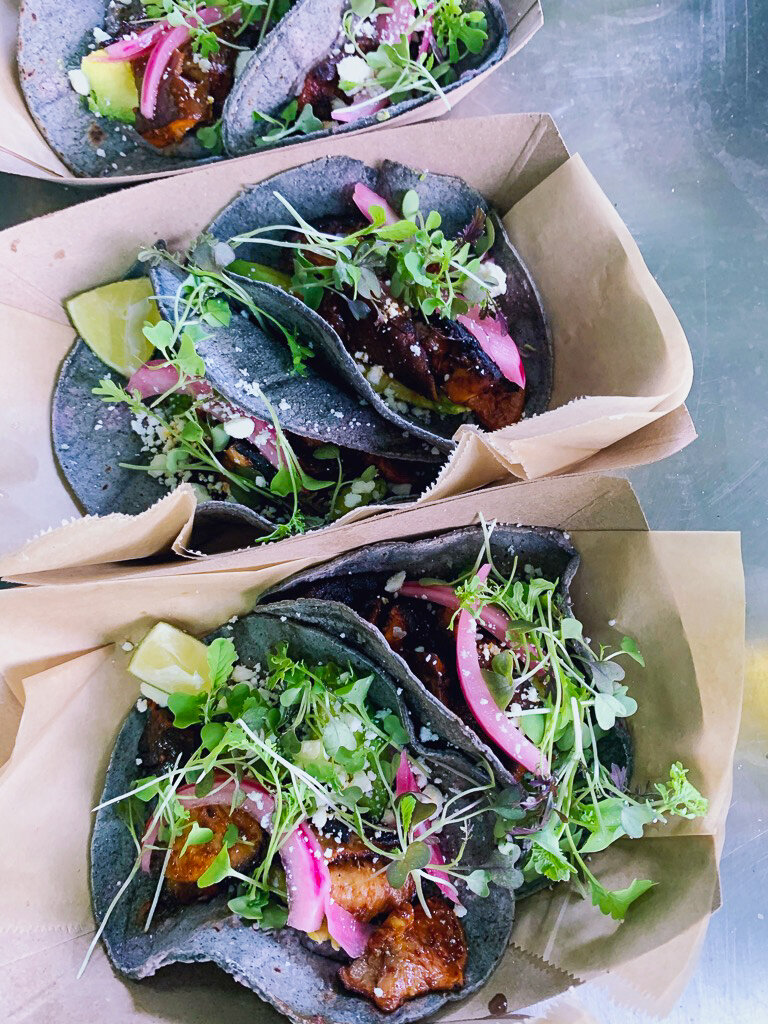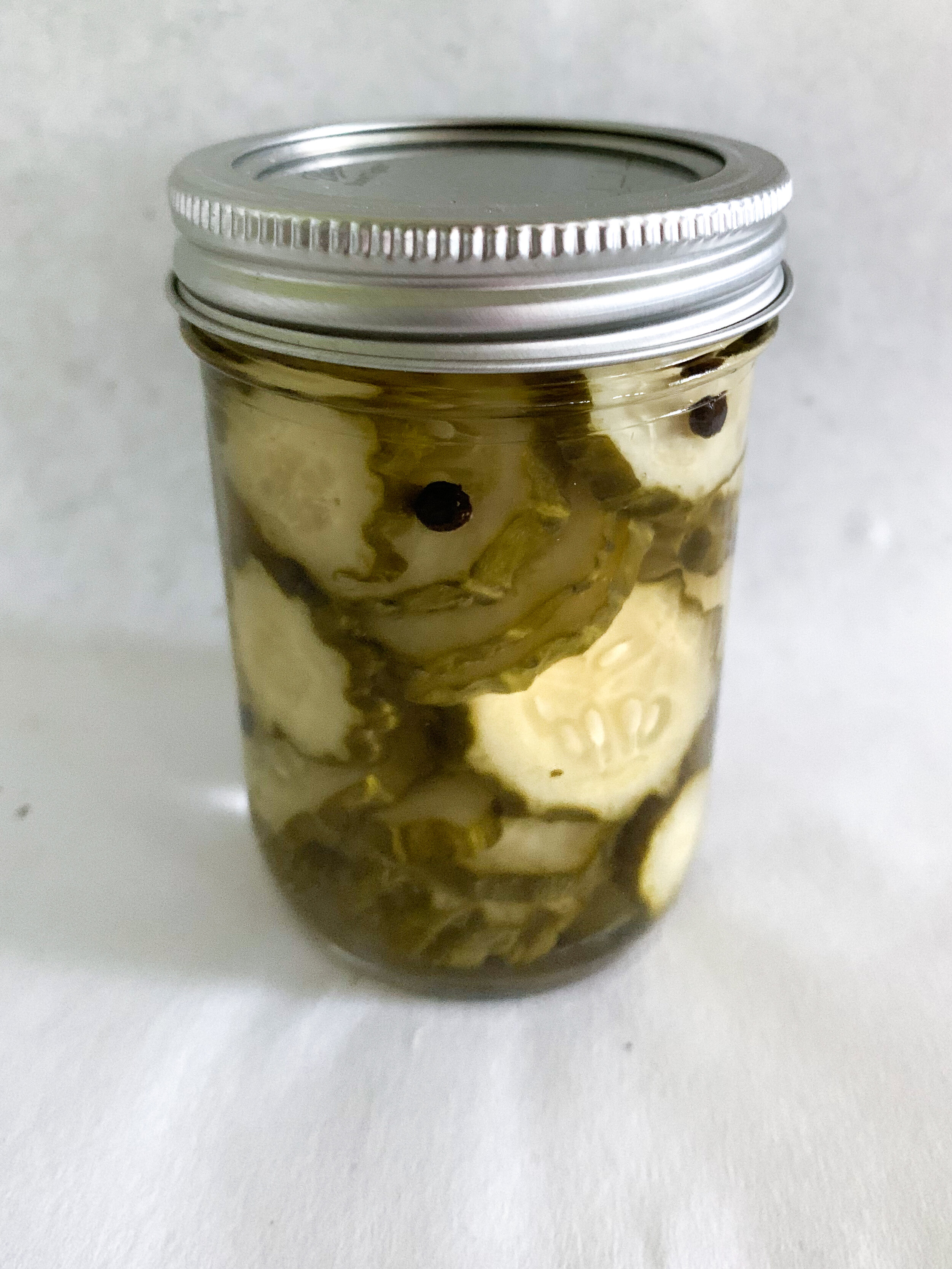
a mobile farm kitchen.
In the spirit of matriarchy, communal imbibing, and agro-ecology we welcome you.
Come as you are, leave a little fuller.
What started in response to a global pandemic, may look like a food truck (well it is), became so much more…
The Pony Stall’s mission is to create an inclusive, collective, and connective community around farm sourced food. We strive to embody an ideology, not an image; a movement, not a moment. The Pony Stall exists to serve ALL members of the community, and welcome those who come from near and far. While we can’t invite you into our “home” so to speak, we aim to make you feel at home and welcome in whatever space we inhabit, in whatever field we open our window to you. We commit to do our best to always do right by our customers, always do right by our farmers, and always grow from our mistakes. We hope to nourish with exciting meals, cultivate conversation around hard topics, and invoke pleasure & joy!
TimeOut New York
By Emma Orlow July 21, 2020
Heading upstate? Check out this new farm-focused food truck
The Pony Stall is a mobile kitchen offering pantry staples, picnic bites and more.
Tucked away in the Catskill Mountains, an abandoned food truck found new life. The Pony Stall began as a means to bring farm fresh food to the people of Tannersville, NY. Working directly with the bounty from the fields of Fromer Market Gardens.
*** The Pony Stall is currently on hiatus. We are renovating a 1973 airstream so that we may return as a roving kitchen to serve you soon! Stay tuned.
The Pony Stall showcases the seasonal fare through farm lunches, simple pastries, aperitivo happy hour, and light dinner service on the lawn. We also produce natural leavened sourdough breads with Wild Hive Farm flours, and value added goods such as ferments and fresh cheese.
We support BIPOC organizations through weekly tip donations and offer “pay what you can” for those who feel our price point is out of their budget. We ALWAYS support local farms by sourcing all of our produce, meat and fish sustainably from nearby sources, when not from our own back yard. We partner with farms who’s practices align with ours.
The GOODS

























The PANTRY















Organizations We Support
Each week we donate the culmination of our tips (plus any cash donations collected at the truck) to an organization centering food and land sovereignty for BIPOC communities. Our only deviation from this mission is when local food organizations or farms that have particular monetary needs in line with our values seek donations for particular action oriented projects.
National Black Food Justice Alliance
National Black Food and Justice Alliance (NBFJA) is a coalition of Black-led organizations aimed at developing Black leadership, supporting Black communities, organizing Black self-determination, and building institutions for Black food sovereignty & liberation. The Alliance seeks to achieve this by engaging in broad based coalition organizing for black food and land, increasing visibility of Black led narratives and work, advancing Black led visions for just and sustainable communities, and building capacity for self-determination within our local, national, and international food systems and land rights work.
BIPOC Land and Food Sovereignty Fund
Helps the SUSU Healing Collective purchase land for Black and brown farmers in Vermont! Visioning a sustainable, food secure future for our people, we are looking for ways to cultivate food ourselves. A future where Black and brown people in Vermont can come together to live, heal and thrive. Which means purchasing land for farming, gardening and intergenerational healing.
A space that is stewarded by Black and brown people, a place of safety, connection, and healing.
The Land Loss Prevention Project
The Land Loss Prevention Project (LLPP) was founded in 1982 by the North Carolina Association of Black Lawyers to curtail epidemic losses of Black owned land in North Carolina. LLPP was incorporated in the state of North Carolina in 1983. The organization broadened its mission in 1993 to provide legal support and assistance to all financially distressed and limited resource farmers and landowners in North Carolina.
LLPP's advocacy for financially distressed and limited resource farmers involves action in three separate arenas: litigation, public policy, and promoting sustainable agriculture and environment.
Sogorea Te Land Trust
Sogorea Te’ Land Trust is an urban Indigenous women-led land trust based in the San Francisco Bay Area that facilitates the return of Indigenous land to Indigenous people. Through the practices of rematriation, cultural revitalization, and land restoration, Sogorea Te’ calls on native and non-native peoples to heal and transform the legacies of colonization, genocide, and patriarchy and to do the work our ancestors and future generations are calling us to do.
Rematriate: to restore a people to their rightful place in sacred relationship with their ancestral land.
Northeast BIPOC Farmer Relief Fund
Part of FarmAid, The Northeast BIPOC Farmer Relief Fund offers financial aid for BIPOC folks living in the Northeast who work in agriculture and have been economically impacted by the COVID crisis. To ensure that theses funds reach folks who may have been excluded from other relief efforts, they have made the criteria and application as simple. They do not require land ownership, as long as folks work in agriculture or fishing. They do not require proof of specific loss amounts with documentation, do not require applicants share any information about immigration status, do not require they speak or read english, and do not require applying online.
Soul Fire Farm
Soul Fire Farm is an Afro-Indigenous centered community farm committed to uprooting racism and seeding sovereignty in the food system. They raise and distribute life-giving food as a means to end food apartheid. With deep reverence for the land and wisdom of their ancestors, they work to reclaim their collective right to belong to the earth and to have agency in the food system. They bring diverse communities together to share skills on sustainable agriculture, natural building, spiritual activism, health, and environmental justice.
Their food sovereignty programs reach over 10,000 people each year, including farmer training for Black and Brown growers, reparations and land return initiatives for northeast farmers, food justice workshops for urban youth, home gardens for city-dwellers living under food apartheid, doorstep harvest delivery for food insecure households, and systems and policy education for public decision-makers.








